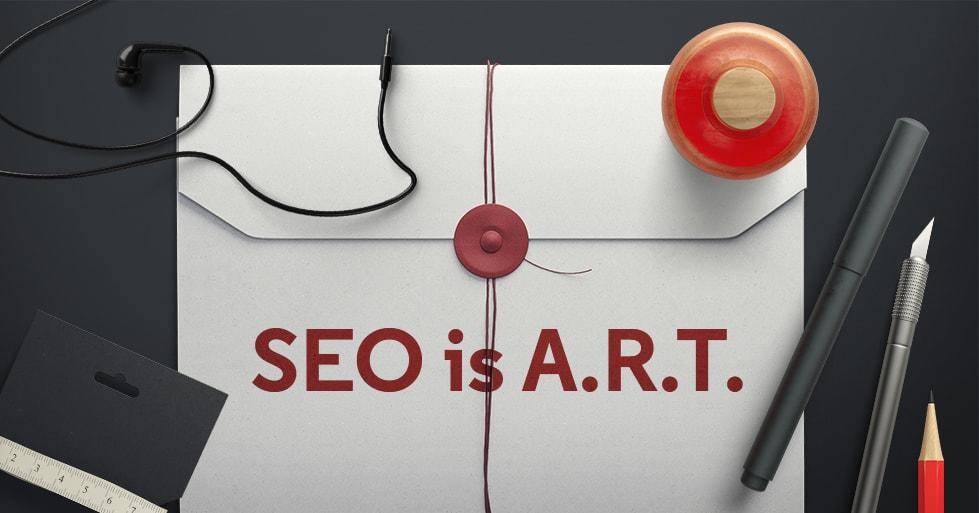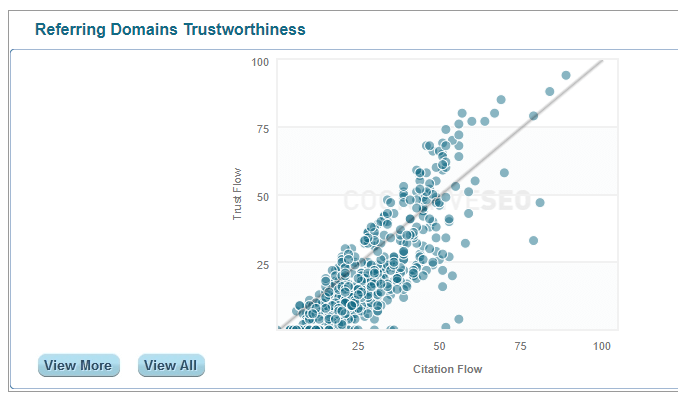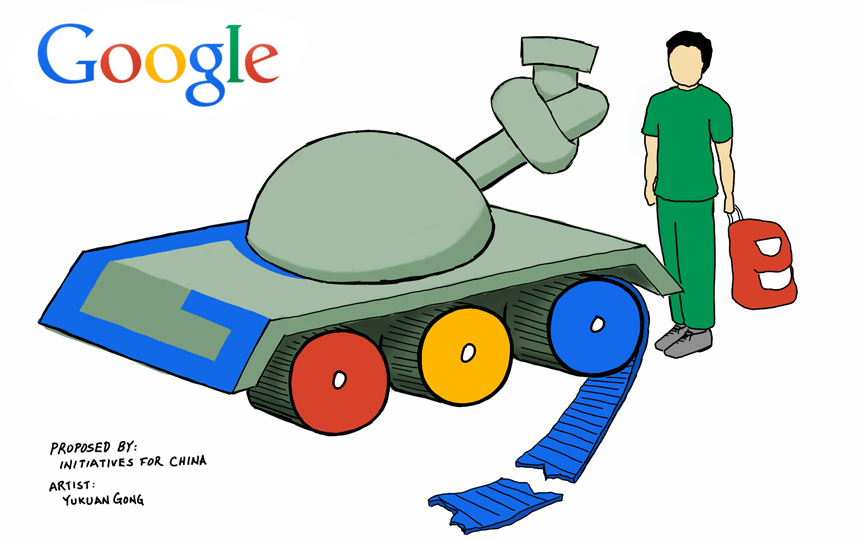Art is not, as the meta-physicians say, the manifestation of some mysterious idea of beauty or God; it is not, as the aesthetical physiologists say, a game in which man lets off his excess of stored-up energy; it is not the expression of man’s emotions by external signs; it is not the production of pleasing objects; and, above all, it is not pleasure; but it is a means of union among men, joining them together in the same feelings, and indispensable for the life and progress toward well-being of individuals and of humanity.
Lev Tolstoy, What is Art?

Can SEO be ART?
SEO is ART: Authority. Relevance. Trust.
This interesting statement coming from Barrie Moran got me thinking and intrigued me at the same time. Does online optimization really has any connections with art or is there anything the two of them have in common? To answer these questions I stepped on a journey about Art and its connection to SEO.
Claiming that SEO has anything to do with art is a pretty bold move, but perhaps an even bolder one is to try to give a universally accepted definition of what constitutes art. Of the definitions that can be found in the Merriam-Webster, for instance, two are of interest. One puts art closer to the idea of craft and seems to focus on the person producing the artistic object, as it defines it as “skill acquired by experience, study, or observation”, as in “the art of making friends”.
It’s fairly easy to make the case for SEO being art according to this definition. It is a skill that can honed over time by learning about coding, design or server architecture (study), by testing and trying and even failing repeatedly before getting the right match with search engine algorithms (experience) and by carefully observing the ever-changing policies of page-ranking and seeing how other web sites get penalized by search engines (and for what).
The other – more popular – dictionary definition makes for a more challenging endeavor. The Merriam-Webster also defines art as “the conscious use of skill and creative imagination especially in the production of aesthetic”. Again we have the idea of skill, this time made even clearer with the use of the phrase “conscious use of skill”, and most people would agree that SEO can be understood as such.
We call people in the business “SEO experts”, which implies not only mastering a craft, but mastering a craft better than other people.
It’s probably the other half of the definition that would have people raise an eyebrow. We can get rid of a large chunk of it (and an unnecessarily abstract discussion about aesthetics) by discarding the last part, since the final product doesn’t necessarily have to be aesthetic. What’s left to talk about? The middle: “creative imagination”. Is SEO the place for that?
SEO is Not Science
Yes, we know, defining something by what it is not is usually not a very sound move, but it is illuminating in this case. In the old days (about two-thousand-and-something-years-ago old), when people were still inventing a lot of things (amongst which you could even find democracy), folks like Plato and Aristotle were trying to figure out whether rhetoric, the art of persuading people, was more of an art or a science.
And it would have surely been more appealing to society if rhetoric had been scientific: follow these steps, build your speech a certain way, use these specific words and people will believe you every time. Sounds somewhat familiar? It should, because for a while people wanted to believe the same about SEO: follow these steps, build your website a certain way, use these specific keywords and people will come look for you every time. Neither rhetoric nor SEO is a science, however. And it has nothing to do with exact technology. In fact, what the algorithms did was to make SEO even more of an artistic process.
Algorithms don’t establish business goals, tell convincing stories or know why your audience buys your product. They simply allow room for more creativity.

The truly persuasive speakers are the ones who speak out of genuine interest for their audience, not the ones who use the fanciest words, have the most joyful attitude or follow public speaking recommendations to the norm. While it’s true that so much of convincing another happens through non-verbal cues, the content of what is said is still what matters and what makes the difference. Just as rhetoric exists to enhance the content and not replace it, SEO exists to enhance your website’s content, not replace it.
When someone clicks on a link that sends them to your website, they do so out of a genuine need to find out more about a certain word or phrase. What happens if they don’t find what they need on your site (because there’s nothing to be found)? They get disappointed. And word travels fast these days. If enough visitors get disappointed, others will hear about it, and in the natural course of things people will stop falling for the keyword trick. Google simply bypassed this whole natural process and saved people a lot of hassle. It has made your content the core of the focus and rightly so.
People read good content, not keyword density ratios!
SEO is Authority
Authority cannot be bought or sold, given or taken away. Authority is about what your website stands for and the influence it has on people. Authority is based on the fact of that people believe in you and your web pages if you try and make them. SEO experts try to enable a website to reach first pages of major search engines under keywords relevant for specific types of businesses and quality content marketing approach.
Basically, it tries to make an encounter between a website and a prospective customers. This encounter is hosted by the search engines which evaluates the site and chooses to place it among the first in the SERPs, due to hundreds of factors, including the age, popularity, and the size of that website, in other words, its authority. Therefore, SEO is closely linked to website authority, as this extremely important ingredient helps websites to get quickly indexed and rank prominently in the search results.
Yet, authority commensurate with responsibility. When it comes to search engine optimization, authority and responsibility are closely related and they pretty much go hand in hand. Search engines want to provide users with website results that can be trusted. Let’s say you’ve made the best efforts to optimize your website and convince the search engines that your site is an authority (including high PA and DA) in the field and is worth being listed among the first in the results pages. Yet, being a headliner also obliges you to generate excellent quality and flawless services. On top of that you need to have a high domain authority that can be generated through qualitaty content. It is a site which has web pages that attract links on a large scale and has high search engine rankings.
Being on the top of the results is a vote of confidence that you’ve received both from the search engine and from your audience and you don’t want to let down any of the two.
SEO is Relevancy
Relevancy in SEO is a must. A webmaster must ask himself how relevant is his page content to the keyword query of his visitor. This mean that if you are selling bikes, your content must not go off topic and be related to bikes and not skateboards. When creating your content, you should have in mind the search terms that your “to be” customers are searching for. “Cheap carbon bikes” could be a keyword at high interest among your possible customers while “eco friendly bikes” might not trigger any interest for your audience.
If you don’t make a clear connection between your content and the keywords you are targeting for, your relevance would get hurt. This way, you will be confusing your audience, the search engines, even yourself and therefore your ranking will get hurt. Search engines are getting smarter and smarter and so does SEO. The link relevance is also an important ranking factor.
Optimization equals relevancy when an in-depth understanding of correctly using keywords and relating them to the proper market niche is done.
SEO is Trust
It is said that trust is difficult to build up, but all too easy to destroy. But what is the basis of this intangible bond? Moreover, what is the base of an online trust?
The search engines needed a way to establish trust, especially in online marketing, and to assign a value to that trust. From the search engine’s point of view, trust is built up from domain age, the periodical updates a site does, the traffic it has or its popularity. If a site ranks high at all of these items, the chances that Google will put it in the first line are very high as it will make Google itself look good. Yet, trust isn’t something you earn overnight.
Building trust is hard and time comsuming, but it come hand in hard with search marketing.
SEO is a long-term process and as beneficial as optimization might be in the process of consolidating trust, it will take long to impact a website’s rankings, but in the end can be a SEO success.
Just like in human relationships, search engines try to determine trustworthiness by evaluating the company you keep. Which sites link to you? Who are you linking to? Who shares your content? All of these are cues that help search engines decide whether you are to be trusted or not. Also, just like human relationships, once defied, trust can bring you down.

The trust for a website is given by the equity of the links it has: if they come from reliable sites, if they are relevant, how strong is the connection so on and so forth. There are some SEO tools that can offer you this kind of information such as domain trustworthiness or link trustworthiness – two metrics from Majestic. It is important to focus on them if you’re doing link building. In the chart above you can see the trust flow and citation flow for a specific website. The higher the point on the graph curve, the better the link quality, where the vertical axis represents Trust Flow and the horizontal axis represents Citation Flow.
A website can be dropped from rankings if it stops reinventing itself, adding fresh content, builds a high bounce rate or just doesn’t attain any click.
The Need of Taking Chances in SEO
“But how will people know how good my content is?” “What if the market is too saturated and I get lost in the stream of information?” “How do I appear different from everyone else on the market?” These are probably some of the questions running through your head at this point. And rightfully so. The good news is, if you’re asking these questions, the present of SEO is such a better time to live in than its past. Everything Google has (officially) done so far has been with the intention of making content matter more and irrelevant things matter less.

Obviously, succeeding mostly through content and organic growth strategies means much more work, in a way. And it’s less of a sure recipe for success. It’s riskier. But that too comes with the territory, as famed movie director Francis Ford Coppola admitted in an interview: “An essential element of any art is risk. If you don’t take a risk then how are you going to make something really beautiful, that hasn’t been seen before?” And the man knows a thing or two about taking risks. While a lot of his movies are now largely acclaimed as masterpieces of cinema (“The Godfather”, “The Conversation”, “Apocalypse Now”), the struggles behind the production of those same movies have also acquired some notoriety.
Sometimes he took a bet by casting still not very well-known actors in the main part: Al Pacino in “The Godfather”, Martin Sheen in “Apocalypse Now”. Other times he made his movies so long that producers felt people were not going to see them: “The Godfather” is just under three hours running time, while the sequel is well over three hours. And time and time again, he made his characters a mix of strength and fragility, and instead of making them heroes to root far from a distance, gave them moral dilemmas that made them likable and easy to connect with. He took all those chances and left us cinema landmarks.
Lessons SEOs Can Learn From ART in General
What’s the lesson to be learned from Coppola’s masterpieces? There are several, in fact:
Have the courage to bet on the unknown horse
In your case, it might be a new social networking phenomenon, or a new sharing feature, or programming language. It’s sometimes easier to be the first (or among the first) at something than to be the best. And if you’re the first, in time, you might just become the best. Dare to walk the less traveled path and you might just notice that there are plenty who will want to follow.
Don’t compromise on your content
Write in ways that are not always bite-size and not always for the MTV generation. Google now relies on algorithms that prioritize quality over quantity, content over keywords, inbound links and several other factors. If you come up with content that is original, or is, at the very least, the result of original research and composition, it might get referred back to naturally, organically, without making additional efforts and to a degree you could not have succeeded by pushing it onto others artificially.
Write to connect with other people
Go one step further and create communities for people to engage with your content and make it better. Make your content available for sharing and make connections with others on the web. Writing guest posts on high or medium authority sites, for instance, can still be an incredibly powerful networking tool, if done right and in an authentic manner.
A Final Thought
Art, as well as SEO, is in the eye of the beholder. Maybe one of the most impressive abilities online is that of helping people connect over common interests. It is that skill which makes SEO ART, and can make you a bit of an artist.
Photo credits: 1 2 3 4

 Site Explorer
Site Explorer Keyword tool
Keyword tool Google Algorithm Changes
Google Algorithm Changes


Great post Razvan. This is really thought provoking and I think you are absolutely right.
I guess in the post SEO was more science, since it was more about the algo, but these days it is about pleasing the right people (your audience) and that has to involve some art.
Although I would argue that some elements still have an aspect of science:
Using analytics to figure out which traffic sources are most effective, which types of content get more links and are shared etc…
Also, split testing (an important part of SEO in my opinion) is scientific in how it is performed, although I will admit that coming up with ideas for the test requires art.
So I guess my point is that SEO is mostly ART, but we can still use science (data) to become better artists.
surely we need some analysis in order to produce better do ART 🙂
Build Authority. Relevancy. Trust. and Rankings should follow.
Good article Razvan. This reminds me of this article:http://searchengineland.com/?p=190742, where the author Jenny Halasz finds it difficult to position herself as ‘SEO Expert’.
I personally find that it is very difficult to get succeed in this industry unless we follow analytical approach to solve clients problems. So I follow this ART too (Analytical Approach.Researching Keywords. Testing).
nice one too 😉
Absolutely agree with you. It’s combination of understanding human emotion and search engine emotion 😀
Thanks for a great article.. Do you think there is more benefit in posting content on content sharing sites like medium or your own personal on-site blog? Keeping backlinks strategy the same on each..